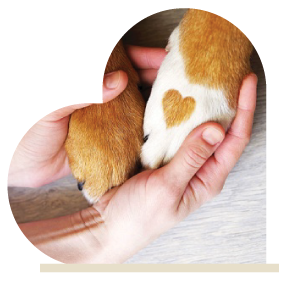Veterinary Oncology
Treating Cancer in Dogs and Cats
Proper training for intrusive tumors
While many veterinarians are comfortable removing small lumps from dogs and cats, larger more intrusive tumors can be challenging to address without proper training and equipment.
Our board certified veterinary surgeon Dr. Seth Bleakley is experienced in many oncological procedures including skin and reconstructive surgery, as well as thoracic, abdominal, and orthopedic surgery.
READ MORE
SHOW LESS
What are signs a dog or cat has cancer?
Cancer can cause obvious changes in your dog or cat’s behavior and habits. If you notice changes in your pet’s energy levels, appetite and thirst, or begin to take note if they are also experiencing chronic vomiting, diarrhea, coughing and labored breathing.
Any of these combined symptoms are worth contacting your primary care veterinarian, but don’t necessarily indicate cancer. It’s always best to get a professional evaluation so you have the tools and information you need to take the next best step for your pet’s health.
How long can a dog live with cancer and what are the benefits of surgery?
Making the decision to treat cancer in your dog or cat when time is of the essence is a very difficult situation for any pet-owner. Please know that we understand and that you are not alone. Often the decision is made easier by gathering more information. This process is known as “staging” and may involve cytology (from needle aspirates), imaging, biopsy and testing lymph nodes.
It is difficult to estimate how long a dog will live with cancer until more information is gathered. Once gathered, an idea of a prognosis can be estimated and will help guide a treatment decision.
READ MORE +
SHOW LESS

Dog Cancers and Oncology Disorders in Pets
CARE Surgery Center
Companion Animal Referral
6677 W. Thunderbird Rd. L188
Glendale, AZ 85306
19035 W. Capitol Dr. Ste J101
Brookfield, WI 53045
Speak for your pet




